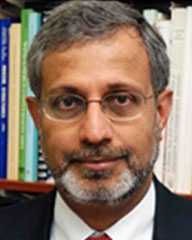Global Marine Technology Trends - 2030 and Beyond
The recent report produced jointly with Lloyd’s Register and Qinetiq identified 18 technologies that are likely to shape the future of the marine and maritime sectors up to 2030. In that report there is a specific section on power and propulsion. Advanced engines, alternative fuels, propulsion energy saving devices, hybrid and renewable sources of power and emissions abatement are all identified as likely technologies that will shape the future. Some of these technologies are already established with the prospect of further modifications and improvements. Other technologies are in their infancy and have the potential to revolutionise, possibly disruptively, the way in which vessels are propelled.
Opportunities for new power and propulsion technologies to gain a foothold are likely to be diverse and not just related to large scale international shipping but also to other forms of vessel operations including short sea shipping, work boats, and the leisure craft sector. Each of these sectors may well require different technologies to deliver power and propulsion in the future.
This presentation will outline these technologies and also reflect on others that may have an impact on marine power and propulsion. Picking winners is difficult but it is clear that the new technologies that will shape our future will arise through collaborations between scientists, engineers and industrialists. Some of the drivers are clear – energy efficiency, safety, environmental impact – but other drivers may emerge. The Southampton Marine and Maritime Institute has been established to enable these kinds of collaborations; the Global Marine Technology Trends 2030 report is an excellent example of just such a collaboration.
Professor Ajit Shenoi - Director, Southampton Marine and Maritime Institute, University of Southampton

Ajit Shenoi is Director, Southampton Marine and Maritime Institute and the Lloyd’s Register / Royal Academy of Engineering Professor of Lightweight Structures within Engineering and the Environment at the University of Southampton.
Professor Shenoi graduated in 1974 with a degree in naval architecture from the Indian Institute of Technology, Kharagpur. Between 1974 and 1978 he worked successively in Mazagon Docks Bombay and Arya National Shipping Lines, Tehran before returning to academe, to the University of Strathclyde, Glasgow from where he obtained his doctorate in 1981. Since then he has been at the University of Southampton as Lecturer, Senior Lecturer, Reader and, now, Professor. He is a Chartered Engineer, being a Fellow of both the Institution of Mechanical Engineers and the Royal Institution of Naval Architects.
Research Interests: Mechanics of composite materials, design of lightweight structures, concurrent engineering, structural health monitoring.










